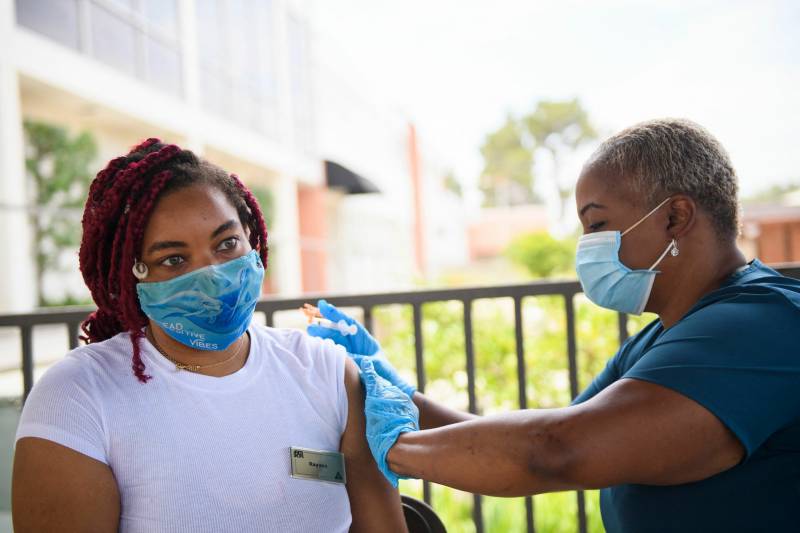The Food and Drug Administration on Thursday authorized the administration of an additional dose of one of the messenger RNA COVID-19 vaccines for people who have certain immunocompromising conditions amid growing evidence that they do not get adequate protection from the normal two-dose regimen of the Pfizer-BioNTech or Moderna vaccines.
The decision was formally an amendment to the emergency authorization under which the mRNA vaccines are already being used. It does not apply to the one-dose Johnson and Johnson vaccine, which has been used far less in this country than the mRNA products. It is unclear how many immunocompromised Americans would have received the J&J vaccine.
“Today’s action allows doctors to boost immunity in certain immunocompromised individuals who need extra protection from COVID-19,” Acting FDA Commissioner Janet Woodcock said in a statement released shortly before midnight. “As we’ve previously stated, other individuals who are fully vaccinated are adequately protected and do not need an additional dose of COVID-19 vaccine at this time.”
Patient groups and the physicians who treat them have been advocating for immunocompromised people — for instance, solid organ transplant recipients who take immunosuppressant drugs — to be given an additional dose, especially in the face of the spread of the more transmissible Delta variant. Several countries — France, Germany, Britain, and Israel among them — are or will soon be giving third doses to immunocompromised people.
The amended emergency use authorizations say the third doses of vaccine should be given at least 28 days after the second shot in the series. The Pfizer vaccine, which can be given to people 12 years of age and older, is administered in two doses, 21 days apart. The Moderna vaccine, which can be given to people 18 and older, is given in two doses 28 days apart.

